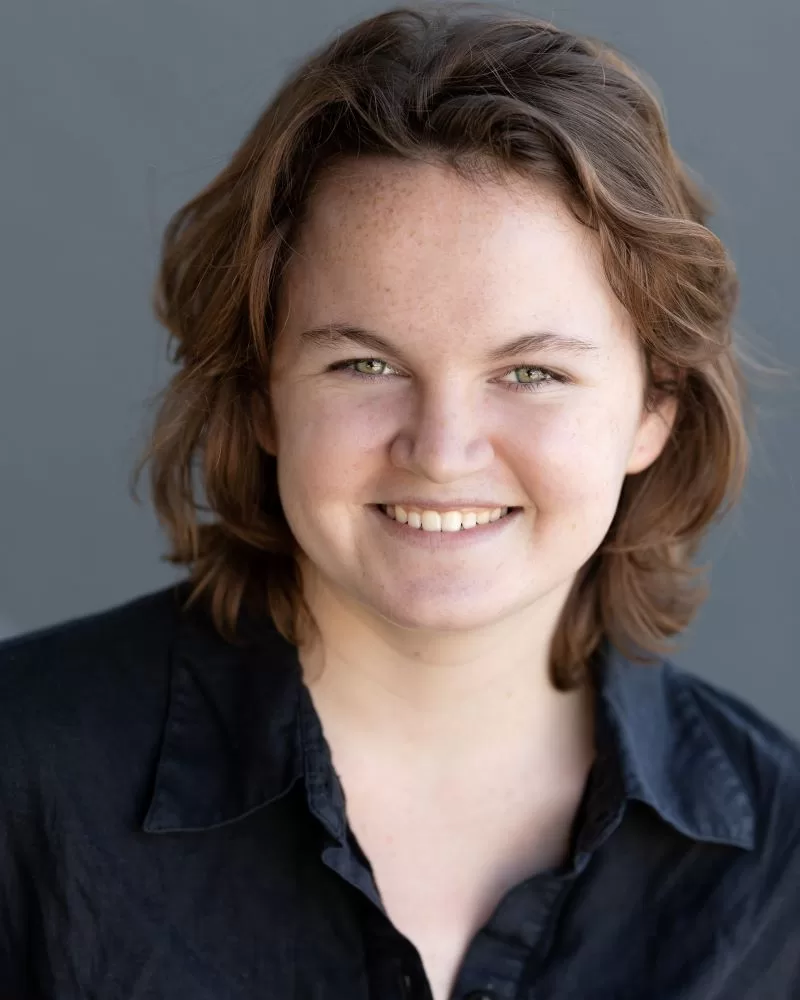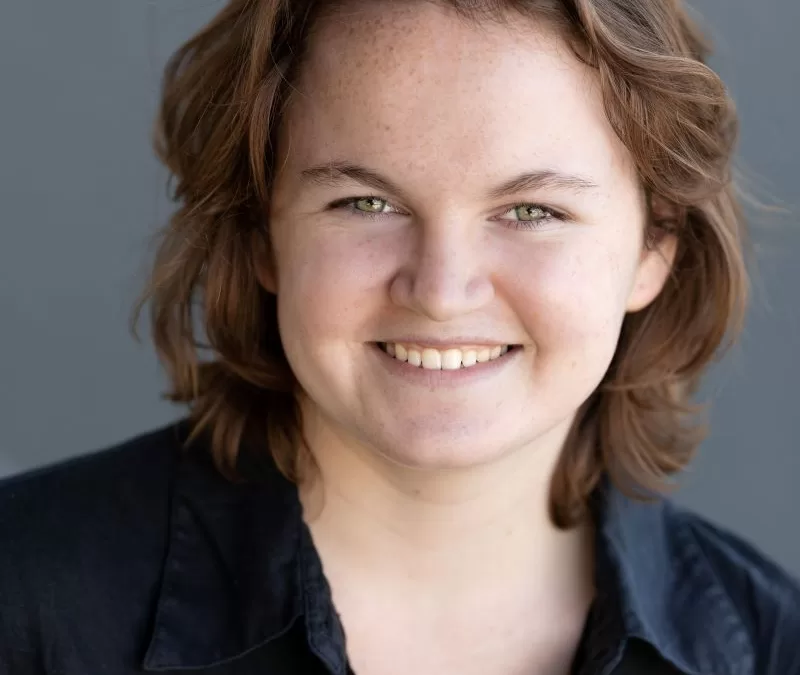
During the enforced seclusion of the pandemic, Ella Storm, then 15, became detached from a central source of joy in her life—the theater.
She soldiered on at first, doing community theater via an online production, but the experience was not the same. So she stepped away from that interest, and the following year, as a junior, she returned to school without including theater in her life.
In the summer before senior year, Theatricum Botanicum resurrected her theatrical spirit through its Teen Shakespeare Intensive.
“I didn’t realize how disconnected I had become from the arts,” Storm said. “Theatricum Botanicum made me remember why I love theater so much. It’s the place where I connect with people the most.”
For Storm, who has had social challenges due to autism, the experience also provided a welcoming, respectful community that encouraged her to both tackle meatier roles and branch out socially as both a leader and a friend. The combination gave her a new faith in herself when she returned to school in the fall.
“It gave me this confidence that even if I don’t connect with everyone, I do have the ability to connect with all of the other students and make conversation,” Storm said. “It gave me the motivation to be more myself in my school environment.”
Her Calabasas school, Qualia: The School for Deeper Learning, has been a second piece of the puzzle that has helped her thrive after years of bullying at her public elementary and middle schools. Once she arrived at the project- and passion-based school, which includes a focus on philosophy as part of its strong academic program, all the bullying ceased. Her school also focuses on deep thinking instead of rote learning, which benefited her at Theatricum Botanicum.
“The Qualia thinking came into effect, because in Theatricum’s classes, they would ask a deep question and I would give an answer from a certain intellectual standing,” she said. “I had an upside from understanding the deep layers of all the underpinnings of the plays.”
In Qualia’s philosophy classes, she had also studied phenomenology and affect theory, which explore the meaning of both perspective and experience, two vital parts of theater. Then at Theatricum Botanicum, which is celebrating its 50th anniversary this year, she investigated those topics through characters, language, and song.
Storm learned Elizabethan history, rhetoric, and dances, and performed monologues and group scenes from plays such as Cymbeline and Macbeth. In the fall, she enrolled in a class with a broad age range that included a number of nine year olds, which allowed her to take on a leadership role.
“After many years of being the little student who had to be invited in by the seniors, I was the senior who had to rally the younger students,” Storm, 18, said.
Her performance of Puck in a selection from A Midsummer Night’s Dream was caught by the theater’s artistic director, Ellen Geer, who consequently asked her to perform it again at the Botanicum’s annual Holiday Faire.
This tradition, which includes a rich summer season that this year will offer the perennial favorite, A Midsummer Night’s Dream, as well as Macbeth, A Perfect Ganesh, and Queen Margaret’s Version of Shakespeare’s War of the Roses, was also part of the unique draw of Theatricum Botanicum for Storm, who said the program, “has a very interesting twist, which is making you feel like you’re a large part of the importance of the theater.”
Storm’s extended family has also found the theater and the broader creative community to be an important field of endeavor, including through work at Theatricum Botanicum. Her great-grandfather, John Storm, worked at the theater with its founder, Will Geer, a successful stage, film and television (“The Waltons”) actor who started the Botanicum after he was blacklisted during the McCarthy Era.
Her great uncle, Jim Storm, also an actor, worked at the Theatricum for a time, while her grandparents, Sally Beall and Michael Storm (a mainstay on the soap opera “One Life to Live”), resided in Topanga Canyon during the 1950’s and ‘60’s and enjoyed its productions.
Now, Storm, who lives in West L.A., has ventured back to the Theatricum, and has become so inspired that she plans to make theater a part of her life for the future.
First, she will join another Teen Shakespeare Intensive this summer, and then she will head to Willamette University, a small liberal arts college in Oregon that is touted in the book Colleges That Change Lives. The school’s supportive, well-regarded academics drew her along with a scholarship that will cover more than 70 percent of her tuition, but their strong theater program was also an essential aspect of the school’s appeal.
“Theater is freeing,” Storm said. “I was born as a little guy and I don’t really get to have a lot of momentum and power. But in the theater, you can get out of your head and into this character. You have this confidence to do whatever I want. It’s also a really rich and accepting community that has become a home and family for me.”





